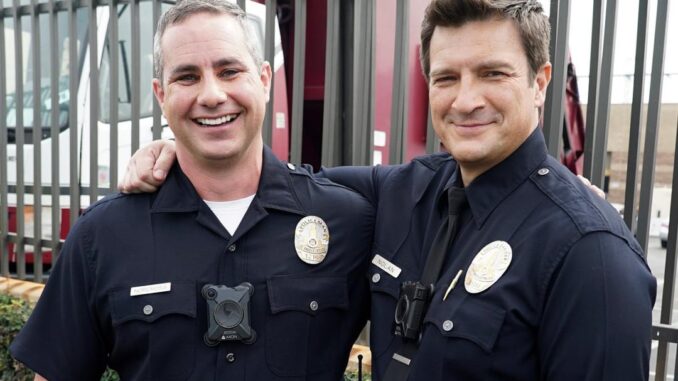
The Unseen Architect: The Untold Story of the Real Rookie
The allure of a second chance is a potent narrative. It speaks to the part of us that whispers, "What if?" What if we could shed the skin of regret, abandon the beaten path, and chase a dream long deferred? This universal yearning finds its vibrant expression in ABC’s hit series, The Rookie, where Nathan Fillion’s John Nolan, a man in his forties, ditches a mundane life to become the oldest rookie in the LAPD. He’s charming, earnest, and perpetually underestimated, a testament to the belief that it’s never too late to reinvent oneself.
Yet, beneath this fictional veneer, beneath the Hollywood sheen and the dramatic arcs of patrol car chases and precinct politics, beats the heart of a far quieter, but no less profound, inspiration. John Nolan, with his relatable everyman appeal and charming self-deprecation, is a brilliant creation. But the true genesis of the series lies in the lived experience of William Norcross, the real rookie whose audacious gamble gifted the world a story it didn't know it needed. His is the untold story, the unseen bedrock upon which a television phenomenon was built.
While Nolan’s on-screen journey begins with a divorce and a construction business collapse, sparking a sudden existential crisis, Norcross’s path was one of a more insidious, simmering realization. He wasn't fleeing failure, but rather a comfortable cage. For years, Norcross had built a successful printing business, a testament to hard work and stability. The whirring of presses, the smell of ink, the predictability of profit – it was a good life, a respectable life. But for Norcross, something was missing. There was a profound, almost primal, desire for more, a different kind of impact, a life lived with a greater sense of purpose and immediacy.
The decision was not born of sudden catastrophe, but of introspection and the quiet tick of time. At 40, an age many consider too late for radical career shifts, Norcross felt the insistent pull of a calling he had long suppressed: law enforcement. He traded the predictable rhythm of his established career for the uncertain, rigorous beat of police academy drills. He left behind the familiarity of his comfortable life, relocated to Los Angeles, and faced a world dominated by recruits half his age, brimming with youthful energy and unmarred by the weight of past decisions.
The parallels between Norcross and the fictional Nolan are striking in their spirit, if not always in their exact details. Both men faced the skepticism of peers and superiors, the physical demands that tested bodies no longer in their twenties, and the constant need to prove themselves in an environment that values experience – but only of a certain kind. Both endured the condescension, the raised eyebrows, the unspoken question of "What are you doing here?" Their stories echo the shared human experience of being the underdog, of swimming against the current of expectation, and of finding an inner strength previously untapped.
But the narrative diverges too, illustrating the very essence of "untold." While John Nolan navigates dramatic love interests, life-or-death shootouts that punctuate every other episode, and a constantly unfolding personal drama, William Norcross's reality was likely more grounded. His heroism lay not in prime-time cliffhangers, but in the quiet, daily grind of patrol work, the patient de-escalation of conflict, and the unseen acts of service that rarely make headlines. He simply did the job, and in doing so, he lived his dream.
The irony, perhaps, is that Norcross’s story remains largely untold because its greatest triumph is its transformation into art. He isn't a celebrity, nor does he seek the spotlight. His life provided the seed, and the show, with its talented writers and charismatic lead, tended to its growth, allowing it to blossom into something recognizable and beloved by millions. Yet, every time John Nolan defies expectations, every time he uses his "life experience" to solve a problem that youth and bravado cannot, it is an echo of William Norcross. Every time a viewer feels a surge of inspiration, a whisper of "maybe I can too," it is a testament to the quiet audacity of the real rookie.
William Norcross’s story is a powerful reminder that the most profound inspirations often stem from the most unassuming lives. He didn't set out to inspire a television series; he simply set out to live an authentic life. His courage to pursue a dream, to embrace a challenging new path at an age when many settle into complacency, became the unseen architect of a widely celebrated narrative. And in that, the untold story of the real rookie is not just a footnote to a hit show, but a vibrant testament to the enduring power of second chances, proving that sometimes, the truest heroes are those whose greatest act of defiance is simply to follow their heart.